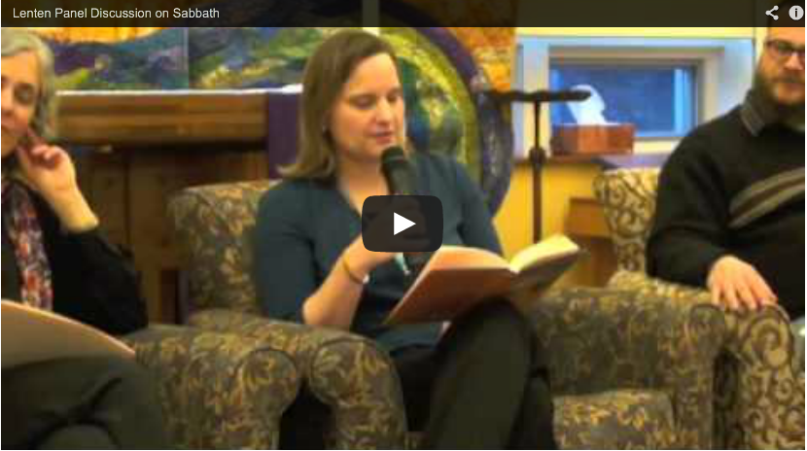A couple of months ago I was asked to participate on a panel at my husband’s church, the Episcopal Church of the Redeemer, where the congregation spent the entire Lenten season studying the Sabbath. (Here’s a longish video of the event, also featuring Slow Church author Christopher Smith, Bishop Tom Breidenthal of the Diocese of Southern Ohio, and my friend Nancy Hopkins-Greene, an author and priest at Redeemer).
I haven’t watched the video and in fact don’t remember much about the event or what I said, because during that week I was experiencing some pretty severe grief and sadness about my mom.
I do remember saying something about how I’d practiced the Sabbath for years but was only just beginning to understand why some people might be afraid of it. Of its silence. Of its demand that we rest.
That’s because as I’ve been grieving my mom, I’ve noticed that I feel better when I keep busy.
Much better, in fact. So I’ve been accepting almost every editorial project that comes my way and occupying myself with writing, travel, appointments . . . you name it.
A couple of weeks ago on my writing retreat (which was wonderful, but which made me cry a good deal more than usual, because I had slowed down enough that I had time and space to realize that every single thing reminded me of Mom), I came across this marvelous quote from Wayne Muller’s book Sabbath:
If we worry we are not good or whole inside, we will be reluctant to stop and rest, afraid we will find a lurking emptiness, a terrible, aching void with nothing to fill it, as if it will corrode and destroy us like some horrible, insatiable monster. If we are terrified of what we will find in rest, we will refuse to look up from our work, refuse to stop moving. We quickly fill all the blanks on our calendar with tasks, accomplishments, errands, things to be done—anything to fill the time, the empty space.
But this emptiness has nothing at all to do with our value or our worth. All life has emptiness at its core; it is the quiet hollow reed through which the wind of God blows and makes the music that is our life. Without that emptiness, we are clogged and unable to give birth to music, love, or kindness. All creation springs from emptiness: In the beginning, God created the heavens and the earth. The earth was without form, and void . . . .
Wayne Muller, Sabbath
Those words rang very true for me. There is so much emptiness just now; and did I mention that everything reminds me of my mother? On the Sabbath, all the memories come crashing down, especially the ones about those terrible last few weeks.
Other people tell me that I’m not alone in this, and that grief is far from the only reason why people might avoid slowing down on a weekly basis. Maybe they feel guilty about past actions, or they simply don’t know how to fill unstructured time. Maybe they don’t know what to say to their family when they finally have the opportunity to spend time together. Or maybe they have no idea what to say to God.
But I am trusting in the knowledge that this emptiness will ease and that something fruitful will come of it. Muller’s final reminder — that in the beginning, everything was formless and void — tells us that when we allow space for formlessness, creation will happen.
New life begins from the void.






